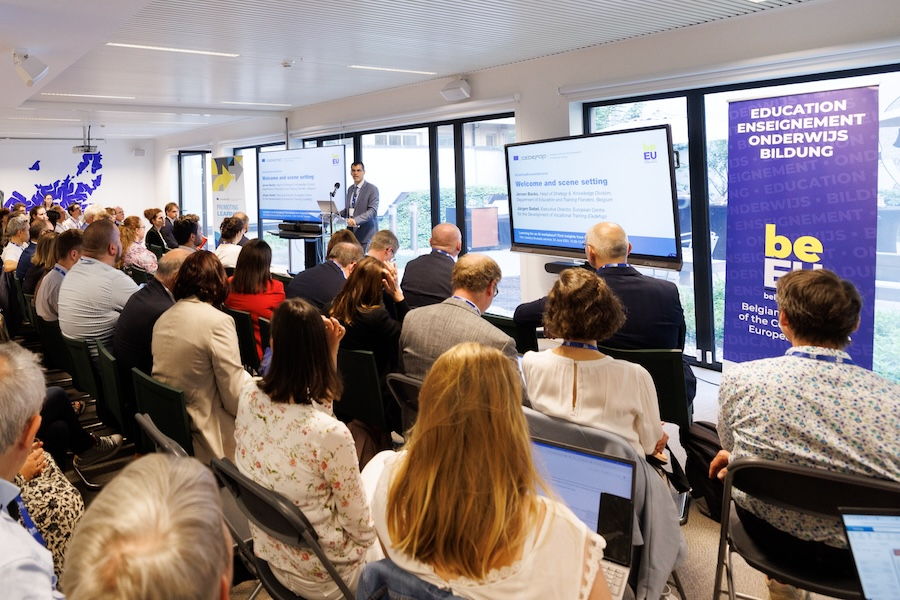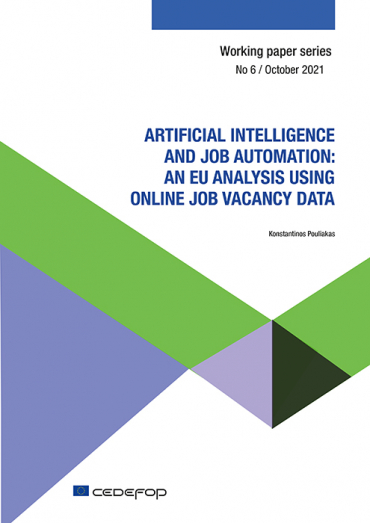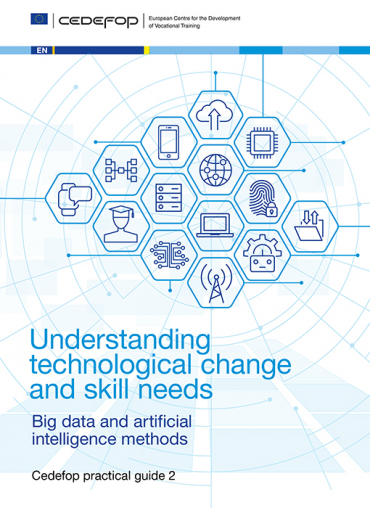As we reach the era of artificial intelligence, Cedefop takes the pulse of workers at the frontline of this rapid transformation and looks at the changes AI brings to the workplace, and if and how these are being addressed.
The initial findings of the first AI skills survey, conducted by Cedefop in spring 2024, were presented on Monday 24 June at the 16th Cedefop Brussels Seminar organised in cooperation with the Belgian Presidency of the Council of the European Union.
Participants in the seminar, entitled 'Learning for an AI workplace? First insights from Cedefop’s AI skills survey', were presented with the first robust insights into AI skill demands in European labour markets, the extent to which European companies adopt labour-friendly management practices and how AI-ready the skills of European workers are – all that from a unique and up-to-date workers' perspective.
As part of the survey, which is a follow-up to Cedefop’s second European skills and jobs survey (ESJS2), 5342 employees from Belgium, Czechia, France, Germany, Greece, Ireland, Luxembourg, Poland, Portugal, Slovakia and Spain were asked to respond to the following questions:
- How many European adult workers are using AI technologies as part of their work?
- What is the automation impact of AI technologies on jobs and tasks?
- What is the relationship between the use of AI technologies and workers’ job performance and labour market outcomes?
- To what extent are European companies and organisations supporting the take-up of AI technologies?
- To what extent are European workers experiencing AI skill gaps and participating in training to mitigate them?
Commenting on the release of the survey’s initial findings, Cedefop Executive Director Jürgen Siebel noted that Cedefop’s long-term outlook shows that automation and AI are quite far from having only a negative impact on employment, and added:
'Some jobs will be destroyed, but the overall jobs impact is modest. It has become clear that technology much more often replaces tasks rather than entire jobs, while actually creating a lot of new ones.
Therefore, the questions we should all be asking ourselves are: How can we get people ready to work alongside AI? What types of training and jobs do we need for that?'
Opening the seminar, Jeroen Backs, Head of Strategy and Knowledge, Flemish Department of Education and Training, Belgian Presidency of the Council of the EU, commented:
'Valuable insights'
‘The Belgian Presidency prioritises an evidence-informed policy and practice in education. Translating research into educational practice is vital. The results of the first edition of Cedefop’s AI skills survey can provide valuable insights that can help us refine our educational systems, ensuring our workforce is equipped with the skills necessary for the workplace of the future.’
Initial insights from Cedefop's survey paint a very diverse picture of how AI is perceived and adopted by workers and businesses across countries, reflecting an existing digital divide. This underscores the importance of targeted policies and investment in digital skills and lifelong learning to ensure that all workers and businesses can effectively leverage AI for growth and competitiveness.
Speakers at the seminar included representatives of the Belgian EU Presidency, the European Commission, social partners, researchers and academics, and participants had the opportunity to reflect on a number of aspects relating to the impact of AI on jobs and the workplace.
Cedefop's research on AI's impact on the labour market is part of its wider skills intelligence work, which allows for the design and implementation of evidence-based policies aiming at a skills revolution – the revolution needed to enable workers to master AI's power through upskilling and reskilling, benefiting both businesses and workplaces.








